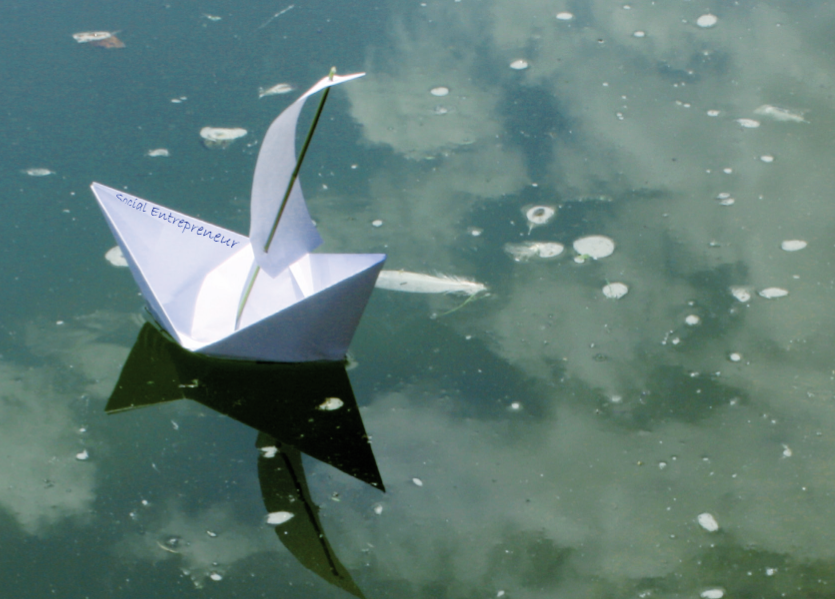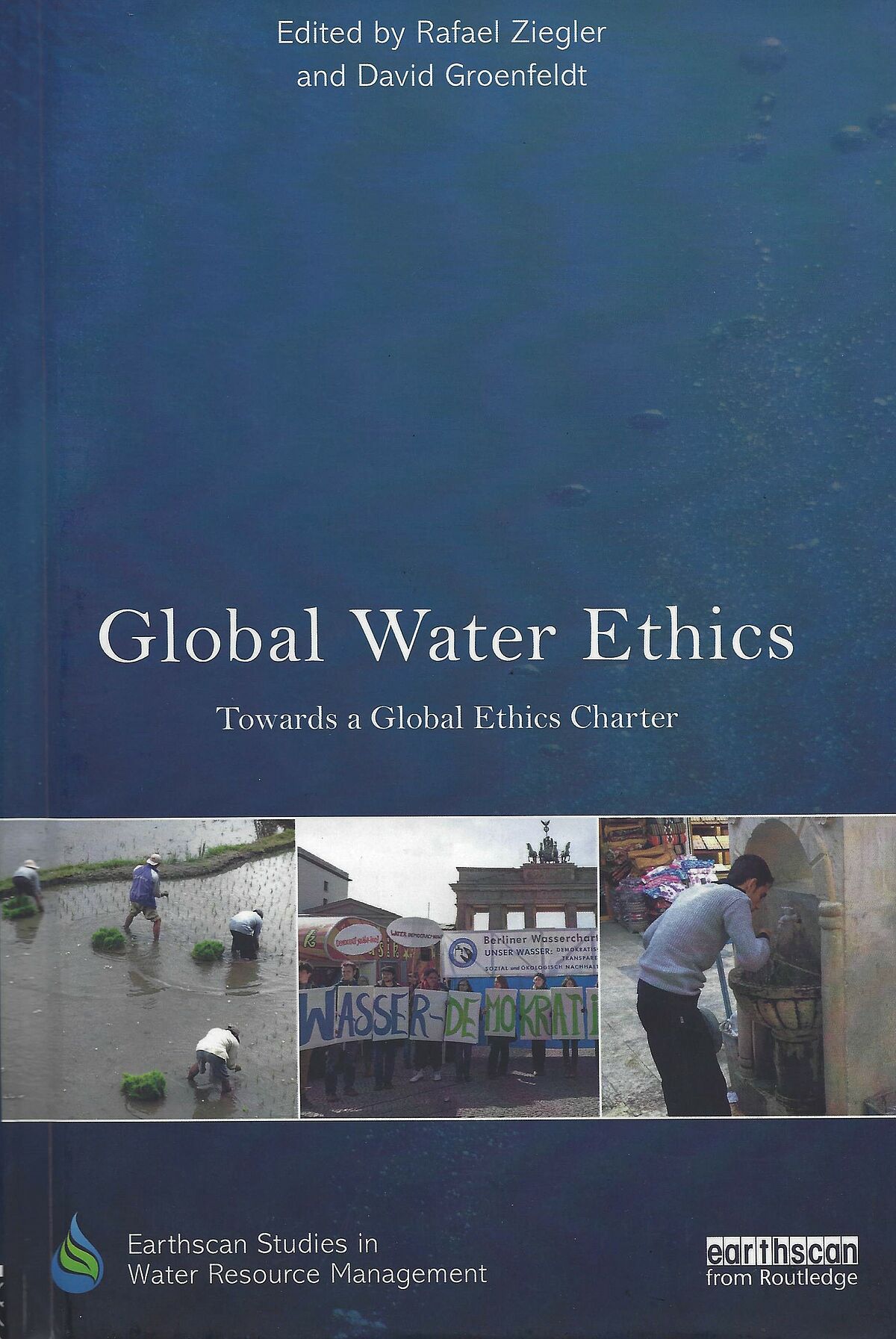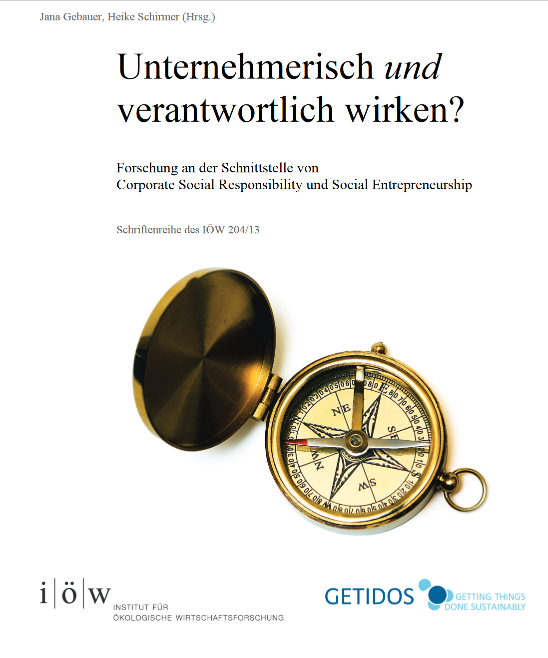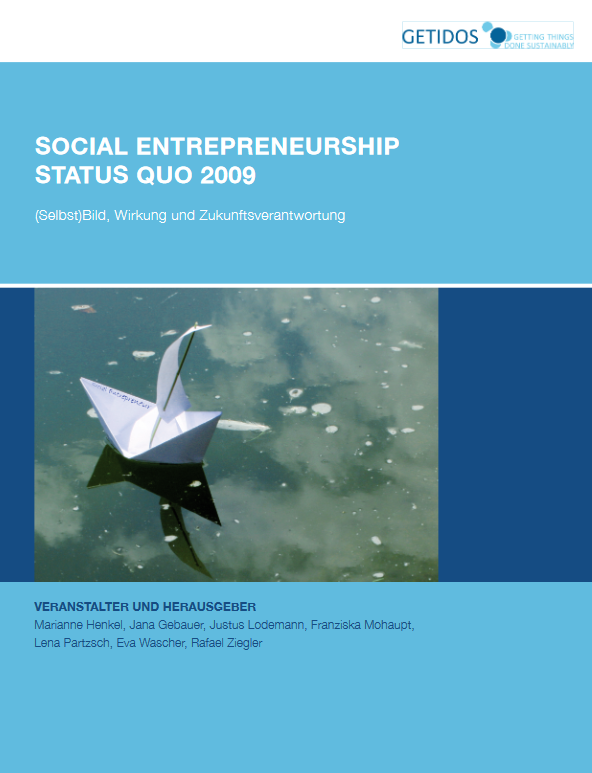Konferenzen und Workshops
ISIRC 2019 Call for Paper Sustainability and Social Innovation
Much recent social innovation research situates social innovation as a force for sustainable development or even transformative sustainable development. Social innovations are said to be changing the role of money, work and sense of self. This raises a number of conceptual and empirical issues: What is the normative aspect of such social innovation research? What is the theory and evidence for or against such sustainability claims (does social innovation also reproduce unsustainability and inequality)? Are social innovations based on autonomy, relatedness and purpose a reaction to marketization and state failures and/or a (historical) manifestation of (growing) demand for self-actualisation, self-determination emancipation and “doing good” ? Finally, what are inter- and transdisciplinary approaches that foster a culture of social innovation for sustainability?
This stream invites contributions on the following themes:
- What is the contribution of social innovation to social and environmental sustainability? Case studies are welcome just as much as more theoretical contributions.
- How can we draw from general approaches to sustainability and sustainable human development (such as the capabilities approach, de-growth, planetary boundaries, resilience approach, steady-state economics and strong sustainability, transition research etc.) to analyse the potential of social innovation as a transformative or incremental force for change, as well its potential for reproducing unsustainability?
- What is the role of transdisciplinary sustainability research for social innovation? The presentation of transdisciplinary research projects is very welcome as are methodological contributions.
- What is the link of social innovation with economic change, welfare state reform, and cultural change? On this topic, we particularly welcome research that bridges the gap between what local actors are doing and political economy (for instance, by drawing on cultural political economy and historical sociology).
Deadline for abstract submission: 28th February 2019. All further information here.

Archiv: Workshops und Konferenzen
Special Session Economic Underpinnings of Social Innovation, ISIRC 2016 in Glasgow
There has been a considerable increase in public interest in social innovation over the last year, which calls for conceptual reflection by economists, sociologists, political scientists and philosophers. This panel invites papers on the conceptual foundations of social innovation and its place and implication for the political economy of regions, nation states and supra-national entity such as the EU. We welcome papers that reflect on social innovation drawing on theories of power, of justice and of institutional change. How to think about social transformation and social innovation; and how about the "capture" of social innovation in political economy? How to think about alternative societal visions and the normative questions they raise in relation to social innovation? Empirical work is welcome as long as it addresses conceptual questions of the political economy of social innovation. Stream Chairs: Judith Terstriep & Rafael Ziegler. Further information: www.isircconference2016.com
Global Water Ethics: Bridging the gap between principles and action, Special Sessions ISEE 2015
Over the past several years, scholarly interest in water ethics has increased dramatically, as testified by a series of monographs, collected volumes, special issues and articles. At the same time the practical challenges for an ethics of water are increasing as well. The specter of climate change is adding urgency to water plans that aim to meet ever growing demand with increasingly scarce supplies. The ensuing gaps between supply and demand are being addressed through investments in water use efficiencies, market-based allocation strategies and inevitably, through removing yet more water from already stressed natural ecosystems (rivers, lakes, wetlands and aquifers). These outcomes are environmentally unsustainable and too often socially unjust, with water capture by wealthy individuals, corporations, and governments.
A new initiative to develop a global "Water Ethics Charter" seeks to promote water decision-making that draws on explicit values and principles through a process of ethical reflection and negotiation. By re-conceptualizing water decision-making as an inherently ethical process (rather than merely a political, economic or legal process), the domain of water policy becoming more open to inputs from philosophy, and particularly the fields of environmental and social ethics.
Accordingly this special session invites contributions that (a) reflect on principles and values that could/should be incorporated into a global water ethics;), and/or (b) consider how a global water ethic might serve as a practical tool for decision-makers in politics, management and civil society. We welcome contributions that discuss:
- the tension between global, universal water ethics and sensitivity to cultural and regional distinctiveness;
- the questions of intrinsic or inherent value of rivers and lakes, aquatic ecosystems and the hydrological cycle drawing on scholarship from environmental ethics and/or cultural anthropology;
- ways of incorporating value decisions into an analysis of global freshwater boundaries;
- the distinction between “waters” for basic human needs vs. for economic and commercial use;
- the human right to water and/or to healthy water ecosystems;
- the cultural right to water and healthy water ecosystems;
- ethical issues of water allocation across competing sectors (e.g., agriculture vs. energy and mining vs. manufacturing, vs. environment);
- the contribution of indigenous and traditional water ethics for a global water ethics;
-the range of ethics (in addition to environmental ethics) implicit in water resources management;
- the potential role of environmental ethics in the water professions;
- the role of "soft law" (including charters, covenants and standards) in relation to constitutionally-grounded "hard laws";
- critical discussion of the water ethics charter specifically.
Session organizers: Rafael Ziegler (GETIDOS, University of Greifswald), David Groenfeldt (Water-Culture Institute), and Léna Salamé (UNESCO Water Division). Background information: From July 23rd to 25th 2015 the Chair for Philosophy and Ethics of the Environment at Christian-Albrecht-University, Kiel, Germany, will host the annual conference of the International Society for Environmental Ethics (ISEE) under the heading “Environmental Ethics between Action and Reflection".
Panel Session: Economic underpinnings of social innovation - addressing marginalized groups in society from a CA perspective in times of European crisis - HDCA 2014
This panel discusses the conceptual foundations of economic underpinnings of social innovation with a specific focus on innovation addressing and including marginalized and disempowered groups. The European economic and political crisis has further increased the risk for societal groups to be marginalized, and even threatens to undermine the overall stability of the European Union as a transnational, integrative peace-building project. Does social innovation on regional, national and transnational levels provide opportunities to overcome challenges with marginalization as well as address structural transformation issues across Europe (Heiskala 2007)?
Social Innovation roughly speaking concerns a) intentionally carrying out a new idea - not just inventing but innovating, which can take place at various levels, b) changing social relations, configurations and processes, and c) contributing towards reaching social ends, in particular human capabilities. Accordingly social innovation here is defined as “carrying out new ideas (products, services, models, markets, processes) that intentionally seek to improve human capabilities, social relations and the process in which these solutions are carried out” (CRESSI working definition).
As this definition indicates, the capabilities approach can play a descriptive and normative role in the investigation of social innovations both as far as a rich evaluative language for the discussion of ends of social innovations is concerned but also for the study of innovation processes and the role of agency in these processes. To this end, the CA needs to draw on further ideas from sociology and economics. Access to resources has been identified by classic innovation studies as a key issue for innovation processes (Schumpeter 1942/75). However, economic sociology also stresses the need to analyze innovation in terms of the formal and informal rules and institutional structures governing the access to, and the use of scarce resources, as well as the networks within which innovators are located and the cognitive frames that define the nature of innovation in a social context. For the analysis of social change dynamics in markets, Jürgen Beckert has proposed the conceptual schema of a “social grid” consisting of three social forces: institutions, networks, and cognitive frameworks (Beckert 2010). On this account, the social forces are irreducible components co-shaping agency and with it the dynamics of social change (Beckert 2010, see figure 1). In turn, agency is a product of the social forces and ties that enable actors to reproduce, modify or transform the social grid.
The panel will discuss how social innovation can be conceptualized in terms of this social grid schema, and with a specific focus on how the capabilities approach can inform the descriptive and normative analysis of marginalization and inclusion processes that social innovations seek to address. Central questions to be discussed include: What is the role of financial capital – and possibly also other “capitals” for enabling agency in the social grid? How to theorize marginalization from a CA perspective, and how to think about the respective role of cognitive frames, institutions, and actor networks in processes of marginalization and disempowerment (see figure 2)? How to analyze capabilities in relation to individual and collective power within the social grid (Heiskala 2007)? Does the social grid analysis have to be expanded to also include the physical environment (see figure 2, left top), and what could such an extended analyze learn from socio-ecological approaches such as the resilience approach (Gunderson and Holling 2002)? Finally, what are lessons and questions from the CA for the discussion of a fair space for innovation beyond innovation policy for the technical-economic innovation?
Session organizers: Enrica Chiappero, Christopher Houghton-Budd, Nadia von Jacobi, Justus Lodemann, Rafael Ziegler (Panel Coordinator).
Philosophy of science & case studies – An exploratory workshop with a focus on critical realism and the capability approach, Berlin Impact Hub 2012
In practice-oriented research, there is a frequent focus on case studies that introduces a tension between the “solution” of particular problems in a specific context and likely with specific partners or stakeholders on the one hand, and on the other hand the traditional goals of science, i.e. objectively valid knowledge of laws and mechanisms, their confirmation, verification or falsification. Resolving this tension in favor of practical problem-solving threatens to cut the connection to science; resolving the tension in favor of science as traditionally understood threatens to produce “brilliant but irrelevant” science.
This workshop assumes that we can get a better understanding of this tension - and even make it fruitful - if we turn to more specific ways of framing this tension and discuss it explicitly. The workshop will take its central cases and examples from one field among many that exemplifies this tension: research on social innovation, entrepreneurship and design as solutions for societal challenges (perspectives from other thematic areas also are welcome).
Workshop zur Macht nicht-staatlicher Akteure in den internationalen Beziehungen (“The Power of Non-State Actors in International Relations”)
Die Forschungsgruppe GETIDOS veranstaltete vom 18.-19. Oktober 2010 in Greifswald einen internationalen Workshop zur Macht nicht-staatlicher Akteure in den internationalen Beziehungen, insbesondere von Social Entrepreneurs. Diskutiert wurden Formen der „Macht über“ (power over), „Macht zu“ (power to) und der „Macht mit“ (power with) vor dem Hintergrund materieller und ideeller Machtquellen nicht-staatlicher Akteure. Paper von Doris Fuchs/Lena Partzsch/Katharina Glaab; Fabian Scholtes; Anna Holzscheiter; David Levy; Dallas Blaney; Alex Nicholls und Andre Spicer wurden vorgestellt und besprochen. Am Workshop nahmen Experten verschiedener wissenschaftlicher Fachrichtungen und der zivilgesellschaftlichen Praxis teil.
4th International Conference on Corporate Social Responsibility
Die "International Conference on Corporate Social Responsibility" der Humboldt-Universität zu Berlin hat sich als erstklassiges Forum für VertreterInnen aus Wissenschaft und Politik, Wirtschaft und Zivilgesellschaft etabliert, die daran arbeiten, unternehmerische Verantwortung in all ihren Dimensionen weiterzuentwickeln.
Die diesjährige 4. CSR Conference befasst sich mit den Herausforderungen für verantwortliches Handeln in globaler Perspektive und erweitert erstmals ihren Fokus auch auf Social Entrepreurship. Getidos organisiert und moderiert dabei das Panel “Research on Social Entrepreneurship and CSR: Different Subjects, Transferable Findings?" mit so illustren Referierenden wie Johanna Mair von der IESE Business School and Stanford University, Christiana Weber von der University Siegen und Markus Beckmann von der Leuphana University Lüneburg.
Ausgehend von einer Kritik der vorwiegend individualisierenden bzw. mehrheitlich qualitativen SE-Forschung entwerfen sie eine organisationale Perspective auf leadership bzw. eine SE-Typologie, die auf quantitativen empirischen Analysen basiert. In der Diskussion wird es vor allem darum gehen, diejenigen Ansätze und Erkenntnisse zu identifizieren, die zwischen den Forschungsfeldern SE und CSR wechselseitig übertragbar sind und jeweils Weiterentwicklungen ermöglichen. Dies ist zugleich ein wesentliches Erkenntnisinteresse von Getidos.
Session Chair: Jana Gebauer (IÖW)
"Water Biographies. Interweaving narratives of people and landscapes"
Wir laden ein zu dem von uns organisierten Workshop (auf Englisch)am Donnerstag, 26. November 2009, von 10 bis 12 Uhr im Direktorenzimmer, Grimmer Straße 88. Es werden zwei Paper diskutiert: Reading ourselves through the land. The legible landscape and an ethics of place - Dr. Martin Drenthen (Radboud University Nijmegen, NL). The Political Biography of Water and the People’s biography - A Case Study of Social Entrepreneurship in the Water Sector - Dr. Lena Partzsch and Dr. Rafael Ziegler.
Einladung zum Open Space Nachtreffen zur Tagung "Social Entrepreneurship:Status Quo 2009 (Selbst)Bild, Wirkung und Zukunftsverantwortung"
HUB Berlin, Freitag, 6. November, 14 bis ca. 18 Uhr. Das Nachtreffen soll der Nachbereitung der Open Space - Veranstaltung dienen ("Was haben wir damals verabredet, was ist inzwischen geschehen?") sowie der Planung der nächsten Schritte. Wer möchte, kann an einem informellen Mittagessen auf dem Restaurantschiff Van Loon im Urbanhafen, Carl-Herz-Ufer, 10961 Berlin (an der Baerwaldbrücke) von 12:30 bis 14:00 Uhr teilnehmen.Bitte melden Sie sich unter Angabe von Name, Organisation & E-Mail bis zum *2. November* unter getidos(at)uni-greifswald.de an, und fügen Sie hinzu, ob Sie am Mittagessen auf der Van Loon teilnehmen möchten. Die Teilnahme am Nachtreffen ist kostenfrei, das Mittagessen zahlen die TeilnehmerInnen selbst.
Die Veranstaltung richtet sich in erster Linie an TeilnehmerInnen der Tagung "Social Entrepreneurship:Status Quo 2009 (Selbst)Bild, Wirkung und Zukunftsverantwortung". Interessierte, die an dieser Tagung nicht teilgenommen haben, sind jedoch auch herzlich willkommen. Die Veranstaltung findet im HUB Berlin, Portal 1, Erkelenzdamm 59-61, Berlin statt.
Einladung zur Veranstaltung "Social Entrepreneurship: Status Quo 2009 (Selbst)Bild, Wirkung und Zukunftsverantwortung"
im HUB Berlin, 16.-17. Juli 2009. In Zusammenarbeit mit der self eG (Social Entrepreneurship & Leadership Foundation) luden wir zum Austausch zwischen Forschung und Praxis ein. Im Vordergrund stand die Begegnung anerkannter Pioniere und neuer Akteure auf Augenhöhe. Dabei sollten zentrale Möglichkeiten und Probleme des Phänomens Social Entrepreneurship im deutschsprachigen Raum sichtbar gemacht und in Vorträgen, Diskussionen und einer OpenSpace-Konferenz bearbeitet werden. Neben Social Entrepreneurs und ForscherInnen stand die Teilnahme allen Interessierten offen.
Water and the Millennium Development Goals: A Case for Collaboration
Governments, international organizations and businesses struggle to achieve the MDGs for drinking water and sanitation. Join this vital, solution oriented discussion on how social entrepreneurs can contribute and collaborate in order to meet these goals. What are the most promising innovations? What is the role of non-state actors in global environmental governance and what questions of power and public/private authority do they raise? Finally, what are the ecological presuppositions of sustaining the water-related MDGs in an age of rapid climate change?
Saïd Business School, Rhodes Trust Lecture Theatre, University of Oxford, Skoll Forum, March 2009. With:
- Benjamin Adrion, President, Viva con Agua
- Chuks Okereke, Research Fellow, University of Oxford
- Joe Madiath, Executive Director, Gram Vikas
- Michal Kravcik, Environmentalist, People and Water
- Rafael Ziegler, Coordinator, Social Entrepreneurship Research Group GETIDOS, University of Greifswald
"Zukunftsgründer? Canadian and German social entrepreneurs for a greener future"
The event will be held on Wednesday, September 2 at 7:00 p.m. at the McGill University, 855 Sherbrooke Street West, Leacock Building, Room 232. The panel discussion on social entrepreneurship’s contribution to environmental sustainability will be held with Dr. Rafael Ziegler, "Getting Things Done Sustainably” (GETIDOS) and Dr. François Brouard, Sprott Centre for Social Enterprises (SCSE). Kerlande Mibel, Compagnie F, will act as moderator and a keynote address will be given by Dario Iezzoni, Montreal Junior Chamber of Commerce. The event is organized by the Goethe-Institut in collaboration with the Institut du Nouveau Monde, the McGill School of Environment, ASHOKA Canada and the Montreal Junior Chamber of Commerce (JCCM).
Progress or Reason? Kantian perspectives on the means and ends of progress
Einladung zum Workshop mit Prof. Pauline Kleingeld (Institute of Philosophy, Universität Leiden)am 23. Juni 2009, 9-12.30 Uhr, Seminarraum, Institut für Philosophie, Universität Greifswald.




